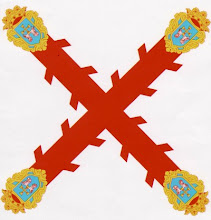Capt. Jack Aubrey: Do you want to see a guillotine in Piccadilly?
Crew: No!
Capt. Jack Aubrey: Want to call that raggedy-ass Napoleon your king?
Crew: No!
Capt. Jack Aubrey: You want your children to sing the "La Marseillaise?"
Crew: NO!
- Russell Crowe, Master and Commander (2003)

The Egyptian campaign' s most obvious purpose, besides bringing additional notoriety to the attention-craving Bonaparte, was attempting to cripple the trading power of Great Britain. This was easier said than done, however, as Britain wielded the most powerful Naval force in the world at the time.
After the early victory against the Mamluks at the Battle of the Pyramids, Napoleon looked to continue towards Cairo and crush the seat of Mamluk power. The British, unnerved at this point, were determined to stop him in his tracks.
The French fleet which had delivered the army lay in waiting along the Epyptian coast, acting as a supply line for the army. While they'd managed to slip past the Royal Navy, their actions had not gone completely unnoticed.
Horatio Nelson, Admiral of the British fleet, finally managed to catch up with the French at the bay of Aboukir. This began the second most famous naval engagement of the Napoleonic Era, the Battle of the Nile.
 Battle of the Nile
Battle of the Nile
Off the coast of Alexandria, French Vice-Admiral François-Paul Brueys d'Aigalliers had been hard at work preparing a defensive position, granting France a favorable position in the mediterranean theatre. With French Influence in Egypt, Napoleon had grand ambitions for a Franco-Indian Campaign to oust the British from their newfound imperial colonies in India.
In truth, Vice-Admiral Brueys' presence there may have been a complete accident. Allegedly, Napoleon had sent orders for Brueys to sail North in order to begin a landing on the island of Corfu, but the messenger had been shot by one of the local Bedoiun raiders.
Brueys faced problems keeping his men's morale up. With a shortage of food and water, Brueys was forced to send a party ashore to gather supplies. The party needed to be protected by armed guards against raiders, which further decreased the number of sailors who remained on-duty.
On August 1st, the British spotted the French fleet anchored in the Bay. When French spotters underestimated the size of the British fleet, Brueys called the captains aboard his Flagship, the L'Orient. This was an incredibly bad move, as would be seen when most of the captains hadn't made it back to their ships by the time the battle began.

Nelson decided to attack at night. He had each ship light 4 torches on their main mast in order to distinguish them from French ships in the dark. He also hoisted a variant of the British Naval ensign that was more distinct from the French Ensign.
With that, the battle commenced. The HMS Goliath was the first ship to be fired upon, leading the charge along with the HMS Zealous. The French ships Guerrier and Coquerant were the rst to respond.
The remainder of the British fleet followed suit, engaging the conveniently lined up, and in some cases anchored, French fleet.
Nearby, the French frigate Vanguard was forced to surrender after a fierce close-range engagement. This was the first of many British victories during the battle.
The most famous point of the engagement was the point blank duel between the British ships Alexander and Swiftsure and the French Flagship, L'Orient. Bypassing the majority of the battle, Swiftsure raced up towards the very center of the fleet, followed by Alexander.
L'Orient, a massive 118-gun Ship of the Line, had been pounding away at the lighter British ships that had been approaching it up until that point, even managing to disable the British frigate Bellerophon. Admiral Brueys, taking personal command of the ship, was struck by a cannonball early on in the fighting. He managed to survive, but was killed by a musket shot a few minutes later.
The wounded Orion, backed up by the Swiftsure and Alexander, approached L'Orient, firing their guns at the monstrous flagship. No one knows exactly how, but a fire broke out aboard L'Orient. A few minutes later, L'Orient, and France's hopes of controlling the Mediterranean Sea, exploded in a ball of flame that was supposedly felt in Alexandria.
That morning, 9 French ships were captured, 4 destroyed, and 3000 French sailors lay dead, along with Vice-Admiral Brueys himself. The British naval supremacy that Napoleon believed he could challenge remained intact, and Napoleon saw his dreams of an Indian conquest die, blown to pieces symbolically alongside L'Orient.
When Napoleon got news of the defeat, he is reported to have exclaimed, "Unfortunate Brueys, what have you done!"
Later that day, he announced to his officers:
"Nous n'avrons plus de flotte: eh bien. il faut rester en ses contrées, ou en sortie grands comme les anciens"
"We no longer have a fleet: well, we must either remain in this country or quit it as great as the ancients."
Napoleon was now cut off from France. There would be no reinforcements.
(Next: Part 3; The continuing Campaign, and why Bonaparte left)





